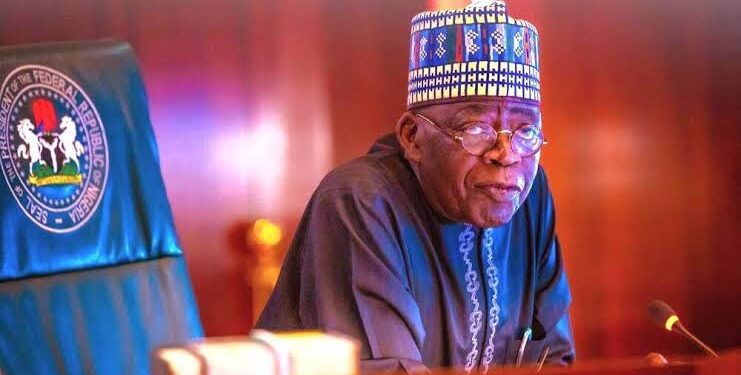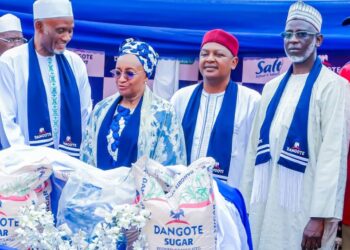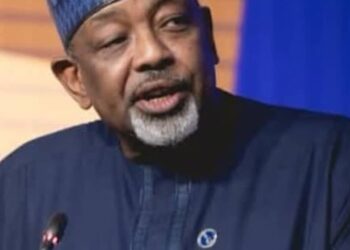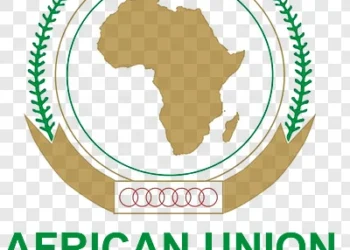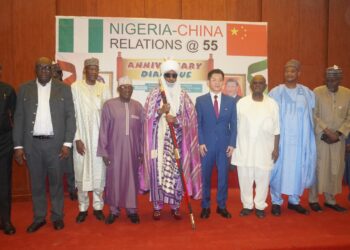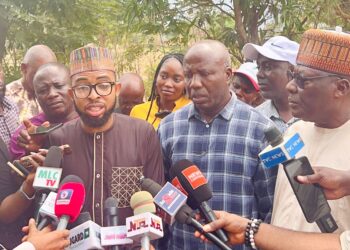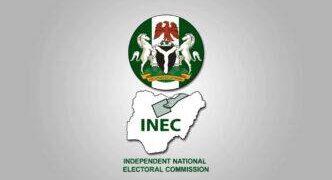*EVALUATING POLITICAL RISKS IN TINUBU’S ECONOMIC REFORMS*
*Implications of Economic Reforms*
Economic reforms, encompassing macroeconomic and microeconomic changes, aim to enhance economic performance, stability, and efficiency.
While they are essential for fostering sustainable growth by creating competitive markets, attracting investment, and boosting productivity, reforms can also have unintended social and political consequences.
These reforms streamline financial processes, reduce bureaucratic barriers, and improve resource allocation, increasing overall efficiency.
Macroeconomic reforms can stabilise the economy by controlling inflation, reducing public debt, and ensuring fiscal and monetary discipline. Deregulation and the promotion of free markets can enhance domestic and international competitiveness and improve the supply of foreign exchange, which is beneficial for businesses, consumers, and economic growth.
However, reforms are typically long-term, requiring sustained commitment to achieving lasting results.
While often seen as a solution to economic challenges, many reform efforts face significant obstacles, and not all succeed.
Political conditions and institutional constraints frequently contribute to the failure of economic reforms, especially in developing countries.
*The Political Costs of Implementing Economic Reforms*
In light of these challenges, it is worth assessing the political risk Nigeria’s President, Bola Ahmed Tinubu, took in decisively implementing economic policies from the outset of his administration on 29 May 2023.
The political costs of economic reforms are substantial in countries like Nigeria, where existing political institutions may not align with international best practices.
In democratic systems, political cycles often limit politicians’ ability to implement long-term reforms due to the electoral process every 4-5 years.
As a result, significant reforms, which require time to yield visible benefits, are often pursued incrementally.
In this context, the 22-month-old Tinubu administration must navigate political pressure and criticism from politicians and influencers.
These critics often position themselves against the administration to capitalise on perceived shortcomings, sometimes misrepresenting ongoing reforms as damaging to Nigerian citizens’ economic fabric and standard of living.
*Tinubu and the Urgency of Undertaking Nigeria’sNigeria’s Economic Reforms*
Despite these challenges, we commend President Tinubu for his steadfast commitment to advancing economic reforms amid substantial opposition over the past 22 months.
The administration has demonstrated a dedication to its reform agenda despite the lack of immediate incentives for engaging in long-term change, which is characteristic of developing nations.
This requires significant statesmanship and leadership, akin to navigating uncharted territories.
Against evident resistance to economic reforms, President Tinubu has shown exceptional perseverance, driven by a forward-looking vision for Nigeria’s economy that prioritises national interest over personal or electoral gains.
This commitment is particularly notable considering the conventional approach of starting reforms with minor and more manageable steps to build success stories and political support.
Reforms are typically categorised into first-generation reforms, focusing on macroeconomic stabilisation and liberalisation, and second-generation reforms, which deal with institutional changes and public service improvements.
The Tinubu administration has embarked on first- and second-generation reforms simultaneously, demonstrating comprehensive engagement with economic reformation.
*Impact Analysis of the Reforms*
Despite the political opposition and other sundry interest groups sniping at the reform implementation, our impact analysis implicates an emerging and truly liberalised economy, which is an accomplishment of a primary objective of the reform agenda.
This is exemplified in Nigeria’sNigeria’s total trade exports, which surged to a high of $50.4 billion in 2024, driven by exchange rate depreciation due to the harmonisation of foreign exchange windows and the elimination of fuel subsidies, the two flagship foundational policies of the reform agenda.
Data from the National Bureau of Statistics (NBS) show that Nigeria recorded a total trade volume of N138 trillion, the highest in the country’s history, representing a 106 per cent increase compared to the previous year.
This translates to $89.9 billion in dollar terms, indicating a 22.1 per cent surge in 2024 when dollarised.
It also rebounded from the 35 per cent decline in 2023 when the government introduced the more market-driven exchange rate.
Nigeria’s five-year high total trade figures were recorded in 2022 when total trade hit $113.8 billion.
The official exchange rate closed the year at N460/$1.
However, that year, the parallel market exchange rate closed at around N736/$, which would have delivered a dollarised total trade of just $71.7 billion.
In 2023, Nigeria transitioned to a more market-determined exchange rate, leading to a 50% naira depreciation.
Businesses are adjusting to the new realities as trade surged significantly in 2024.
Impressively, total exports nearly doubled, rising by 96.3% to N60.59 trillion in 2024, as Nigeria’s crude oil output reached 1.5 million barrels daily.
In dollar terms, total exports stood at $50.5 billion, up from $39.6 billion in 2023.
However, this was still lower than the $58.2 billion recorded in 2022, which, at the time, translated to N26.7 trillion based on the prevailing exchange rate.
Crude oil exports accounted for $36 billion (N55.2 trillion) in 2024, making up about 71% of total exports, while non-oil exports hit a four-year high, reaching $5.9 billion in 2024, the highest level since 2020 in naira and dollar terms.
Concomitant with the nation’s exports surge, imports rose in dollar terms, reaching $39 billion (N60.5 trillion) in 2024, based on the closing exchange rate of N1,535/$1.
This compares to $34 billion in 2023 but remains significantly lower than the $55.6 billion recorded in 2022.
*Changing Dynamics in Nigeria’sNigeria’s Trading Partners*
The 2024 trade data also indicate a shift in Nigeria’s trade dynamics, with Africa emerging as the largest export destination.
This reflects increased intra-African trade and initiatives like the African Continental Free Trade Area (AfCFTA), underscoring the potential for further expansion.
*The Naira Depreciation and the Remodeled National Economy*
Following the President’s policy of harmonising the multiple foreign exchange windows, the depreciation of the naira has become the pivot of the remodelled national economy.
On this note, we agree with the submission of the British think tank Chatham House, which asserts that the Nigerian economy has become more competitive than ever in the last 25 years.
In making this assertion, the British think tank surmises that the naira, which has been devalued by more than 70 per cent, fell from N460 to the dollar around 2023 to just about 1,500 now—one of the most significant currency adjustments anywhere in the world for years: only the Ethiopian birr has seen a more substantial move recently.
With the naira’s fall, Nigeria is arguably more competitive than ever in the past 25 years.
However, we disagree with Chatham House’s year 2000 base year comparative reference as the period the Nigerian economy was most competitive over the past 25 years.
Indeed, the Nigerian economy improved in 2000 as the real GDP growth rate rose to 3.8 per cent compared with 2.8 per cent in 1999 and 1.8 per cent in 1998.
However, the improved growth performance in 2000 was primarily due to the favourable terms of trade shock following an oil price increase from $18 per barrel in 1999 to $28 per barrel in 2000.
The income effect of the shock enabled an expansion in government expenditure, which, together with the buoyant oil sector, boosted growth.
There has been no time since 2000 when Nigeria’s national trade and economy had been driven by the depreciation of the local currency, leading to high export earnings.
The credit for the emerging Nigeria’s national economy should be ascribed to the Tinubu administration.
This was achieved in under 22 months.
*Increased Forex and Foreign Investment Inflows*
The surge in trade surplus is connected to foreign exchange inflows into the country, which enable international trade.
The Central Bank of Nigeria reports that the first 10 months of 2024 witnessed aggregate foreign exchange (FX) inflows into Nigeria totalling $79.8 billion, an impressive increase of 41 per cent on a year-on-year basis from $55.6 billion in the same period of the preceding year.
Again, like the emerging pattern observed in diversifying international trade jurisdictions, increased foreign exchange inflow sources have moved from CBN’s official sources to autonomous sources.
The autonomous foreign exchange market comprises FX trading segments such as the interbank market, the Investor’s and Exporters” (I&E) FX window, and any such approved and recognised trading segments that may be approved occasionally. Consequently, net forex inflows from autonomous sources jumped by 73 per cent to $39.7 billion from $22.93 billion.
The increasing inflow of FX through autonomous sources can be attributed to the CBN’s supportive measures to bolster market liquidity.
On the final count, net forex inflows rose by 65.7 per cent to $46.92 billion from $28.31 billion in the corresponding period of 2023.
In the same vein, under the facilitation of the Tinubu administration, Nigeria is redeeming its profile in the perception of foreign investors.
Over the years, concerned investment experts lamented that it is a tragedy that a country of more than 220 million people has been unable to attract more than $2 billion worth of net Foreign Direct Investment inflows annually in recent years.
This is changing; when foreign investment inflow into the country in 2024 is finally tallied, Nigeria may have received about $21 billion worth of foreign investment, with only the Nigeria National Petroleum Corporation Limited (NNPCL) attracting $17 billion.
This has enormous implications for the country’s productivity, job creation, and wealth creation.
Foreign investors are naturally drawn to economies that promise higher returns than those in their home countries. FDI comes in various forms, depending on the type of companies involved and the investors’investors’ goals.
An investor might engage in FDI by purchasing a company through a merger or acquisition, setting up a new venture, or expanding an existing one.
Other forms include acquiring shares in an associated company, establishing a wholly-owned business, or participating in a joint venture that spans international borders.
With improving macroeconomic indicators, Nigeria is becoming an increasingly attractive destination for global FDI.
*Falling Food Prices*
Meanwhile, Nigerians are getting into the cheery mode as food prices continue to crash in markets across the country.
High food prices had kicked in after the removal of fuel subsidies and the harmonisation of the foreign exchange windows due to increased transportation costs and high foreign exchange rates on imported food items.
As the economy adapts to the cost-trigger policies, prices are being correlated at different supply and demand equilibrium levels, reflecting reduced costs of inputs and logistics, which are reflected in both the headline and food inflation figures for February 2025.
Nigeria’s inflation rate declined for the first time in months, dropping to 23.18 per cent in February 2025, compared to 24.48 per cent in January, according to NBS data.
The February 2025 headline inflation rate decreased by 1.30% compared to the January 2025 headline inflation rate.
Significantly, food inflation, which has been a major driver of rising living costs, stood at 23.51 per cent in February 2025. This is lower than the 37.92 per cent recorded in February 2024.
The downward slide in petroleum prices and the appreciation of the naira against the dollar have been credited for falling food prices.
*Increase in government revenue*
Total FAAC allocations jumped to N15.26tn in 2024, a 43% increase from the previous year.
Again, the surge can be attributed to the Tinubu administration’s fiscal reforms, including removing fuel subsidies and exchange rate adjustments, significantly boosting oil revenue remittances.
A breakdown of the disbursements for the period shows that the Federal Government received N4.95tn, state governments got N5.81tn, and local governments got N3.77tn.
The report noted that state governments recorded the highest percentage increase in allocations, rising by 62 per cent from N3.58tn in 2023 to N5.81tn in 2024.
*Concerns over distorted growth of the agriculture sector*
Despite falling food prices, we are concerned with the continued distorted growth of the agriculture sector over the last five years.
An analysis of NBS data showed that the sector’s growth stood at 3.42 percent in 2020, rising to 3.58 percent in 2021.
It dipped to 2.05 per cent in 2022 and then grew to 2.10 per cent in 2023 before slumping to 1.74 per cent in 2024.
This growth distortion has been attributed to the worsening impact of climate change, high input costs, and inadequate funding for farmers.
It resulted from the trailing effect of the scrapping of the Anchor Borrowers’ Programme (ABP), an initiative that provided cheap input credits for farmers. This implies a reduced or non-intervention in the agriculture sector in 2024.
Input prices surged by over 200 per cent, and farmers could not get adequate funding to grow more, so the ABP that provided such cheap funding was suspended.
This is just as the gains recorded in the Nigerian rice industry are fast fading as high production costs squeeze local millers, leaving room for foreign varieties to flood the markets across the nation.
We hope these agriculture sector-related challenges will be addressed, especially considering the N1.5 trillion Bank of Agriculture (BOA) recapitalisation as provided in the 2025 Appropriation Act.
This institutionalisation of funding channels to the agriculture sector is a more nuanced and sustainable approach to intervention in the industry.
Similarly, the bank’s recapitalisation suggests the federal government’s commitment to transforming the national agriculture sphere from the historical subsistence farming method to a technology-driven estate farming template.
*Conclusion*
In conclusion, the nature of the Tinubu administration’s engagement with the national economic reform is holistic and calculated.
Recognising the parasitic nature and wastes inherent in the petroleum subsidy regime and price suppression through currency exchange rate pegging, the economy requires profound initiatives and economic reforms to redress and put on proper footing.
Expectedly, we have witnessed many events and instances of outrage against the reforms even though many Nigerians in public are delighted to eulogise the reforms that transformed economies of countries like Singapore, Malaysia, and Rwanda into modern-day market-driven economies as being currently undertaken in Nigeria.
However , for this set of elite Nigerians that delight in eulogising these other countries, this is without giving consideration to how long it took those economies to attain current status under their respective reformist champions.
In retrospect, it took Lee Kuan Yew, for instance, the first seven years of implementing his reform agenda plus the banishment of opposition politics in Singapore before there was any indication of the envisaged economic character his reforms set out to accomplish.
Under Paul Kagame, Rwanda is still a going concern regarding economic reform, which he commenced in the vastly agrarian country about 25 years ago.
Again, like Singapore, opposition politics is not tolerated in East-Central Africa.
In this way, we urge President Bola Tinubu to stay the course of the reforms because we are sanguine about their impactful outcomes and potential to elevate Nigeria’s economic standing.
Signed:
Omoniyi M. Akinsiju, PhD
Chairman, Independent Media and Policy Initiative (IMPI)
March 26, 2025.
(vitalnewsngr.com)


